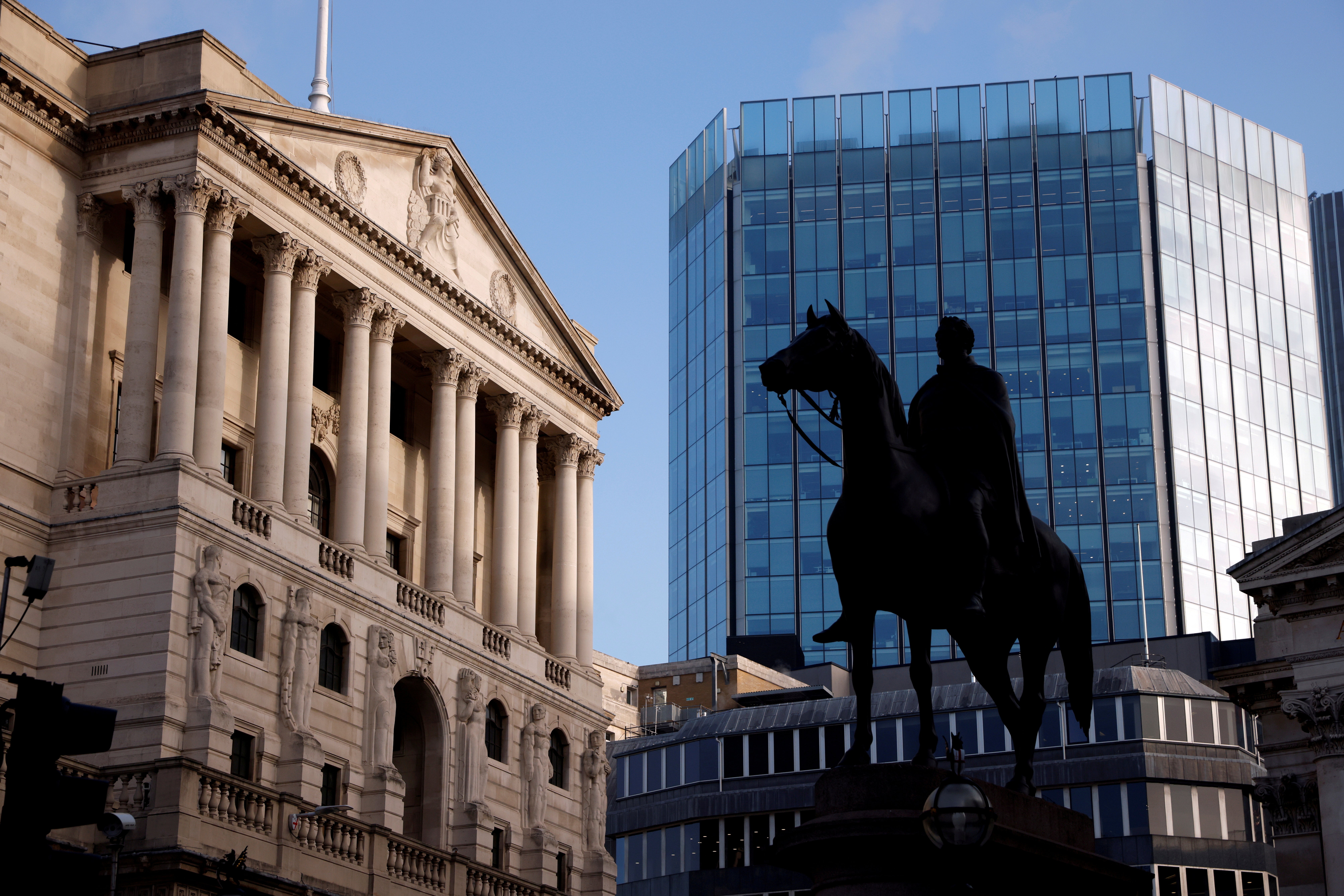Bank of England maintains interest rate following Covid vaccine news
Monetary Policy Committee concludes existing rate ‘remains appropriate’ but warns GDP growth likely to be ‘a little weaker’

The Bank of England has left interest rates unchanged at 0.1 per cent after successful trials of coronavirus vaccine candidates appear “likely to reduce the downside risks” to the UK economy.
The Bank of England Monetary Policy Committee (MPC) voted unanimously in favour of holding rates, judging that “the existing stance of monetary policy remains appropriate”.
The committee also voted to keep the Bank’s quantitative easing (QE) programme at £895bn.
In a statement, it said: “The main news since the November report has been the successful trialling of some Covid vaccines and initial plans to roll them out widely over the first half of next year.
“This is likely to reduce the downside risks to the economic outlook from Covid previously identified by the committee.
“Financial markets worldwide, and some surveys of businesses and consumers, have reacted positively to these developments which are likely to support the future UK and global activist.
“Nevertheless, recent global activity has been affected by the increase in Covid cases and associated reimposition of restrictions.”
Policymakers said gross domestic product (GDP) was expected to be “a little weaker” than it had previously forecast as the second wave the Covid-19 continues its hold over the UK.
UK GDP grew by 0.4 per cent in October, which was eight per cent below its level in the fourth quarter of 2019.
“Activity has been stronger than expected, despite the recent rise in Covid cases and associated lockdowns,” it said.
The committee predicts that a “successful” rollout of the Covid-19 vaccines should enable the “gradual removal of restrictions and rebound in activity that was assumed” in its report last month. However, it admitted that it was unclear how this prospect would affect the “immediate economic behaviour of households and businesses”.
The decision to maintain interest rates will come as good news to bank bosses, who cautioned the Bank against taking the rates negative for what would have been the first time in the UK’s history earlier this week.
Amanda Murphy, head of commercial banking at HSBC UK, told the Commons Treasury Select Committee in places where negative interest rates have been introduced – such as Japan and Switzerland – inflation has not risen and “growth hasn’t come back as strongly as one might have hoped”.
Susan Allen, chief executive of retail and business banking at Santander, added that there are “some legacy systems that were never built for negative interest rates”, and adapting these systems could take between 12 to 18 months.
Negative interest rates would also effectively mean customers having to pay to keep their money in a bank, instead of earning interest.
The MPC added that the economic outlook “remains unusually certain” and will depend on how the coronavirus pandemic and the response to it evolves, as well as “the nature of, and transition to, the new trading arrangements between the European Union and the United Kingdom”.
If the outlook for achieving the two per cent inflation target weakens, the MPC “stands ready to take whatever additional action is necessary to achieve its remit”, the Bank said.
Join our commenting forum
Join thought-provoking conversations, follow other Independent readers and see their replies
Comments




Bookmark popover
Removed from bookmarks